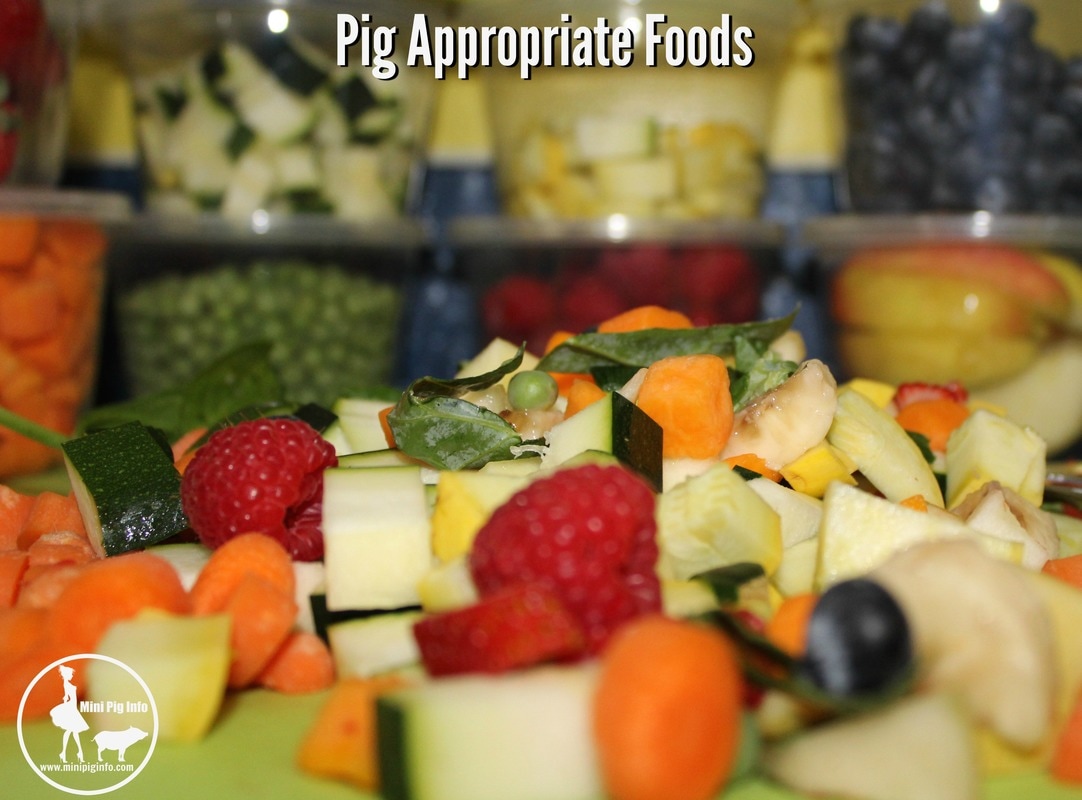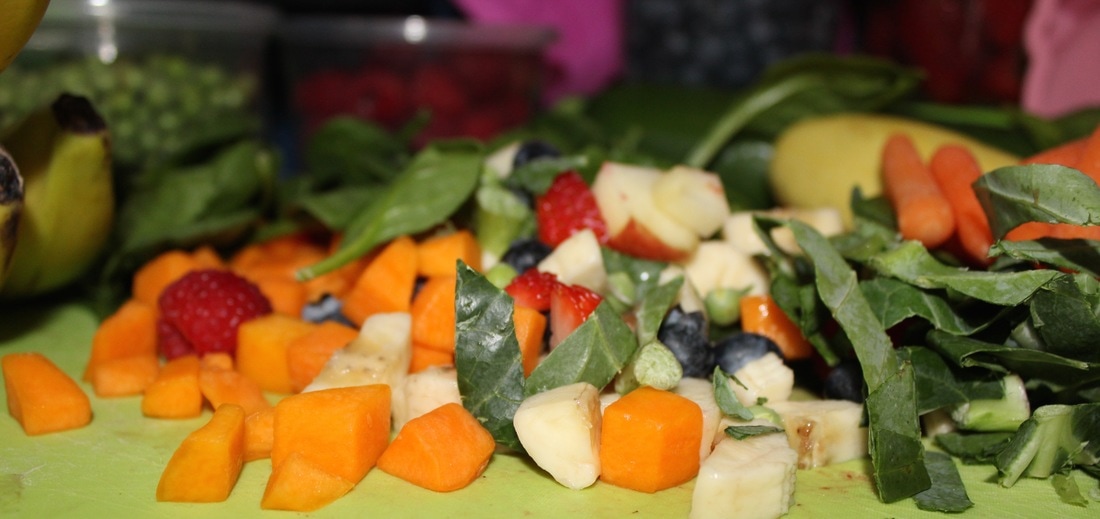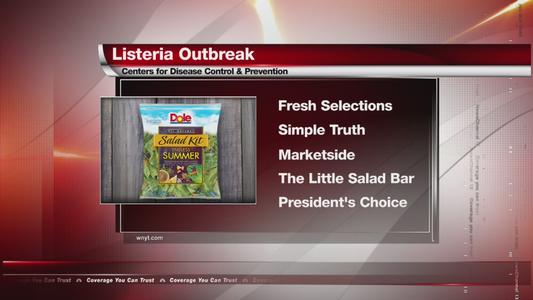Pig appropriate foods
Healthy foods is what you should focus on. Maximize energy sources with the lowest amount of calories. Pretty much all the foods pictured above are pig appropriate. These foods can be given in addition to the pelleted feed or if you are choosing to go with a natural diet, these foods will be part of your pigs diet plan. (Click here to read more about an all natural diet) Starchy foods should be limited as should naturally sweet foods like fruit. These complex sugars still break down to sugars and if not burned, will turn into fat. But, fruits and vegetables are both carbohydrates and the glucose from either can be stored as fat. Pigs can pretty much eat anything that humans eat...IN MODERATION.
We also wanted to address foods you should avoid in addition to listing foods that are ok.
Watermelon rinds and corn cobs, these tend to be 2 common concerns with miniature pigs. Avocado, peach pits, plums and other foods with a pit in them should also be "de-pitted" or cut up into slices so your pig doesn't accidentally swallow something that can block the airway causing them to choke.
Dark, leafy greens, like kale or spinach, are perfect for pigs, providing ample amounts of vitamins and fiber which makes them feel fuller longer. Other healthy vegetables snacks for pigs include bean sprouts, beets, broccoli, butternut squash, carrots, cauliflower, cucumbers, parsnips, peppers, pumpkin, summer squash, turnips, winter squashes and zucchini. Here is a list of foods that are appropriate to feed your pig in addition to your manufacturered pelleted feed. Any additions to your pigs pelleted feed should be measured and calculated into the total amount being fed. ANY food can be an energy source, but not all foods are equally as nutritious as others.
Gherkin
Pickling Cucumbers
Escarole
Beet Greens
Collard Greens
Dandelion Greens
Kale
Kohlrabi Greens
Mustard Greens
Rapini
Spinach
Swiss Chard
Turnip Greens
Iceberg
Leaf- Green Leaf, Red Leaf
Romaine
snow peas
sugar snap peas
Pigs can pretty much eat the same foods that people can eat. Some pigs prefer to eat their veggies cooked rather than raw, and most pigs have a preferred foods that they’ll eat without any fuss, but those same pigs will leave some vegetables in their bowl and refuse to eat them. These foods shouldn’t be cooked with butter or salt, if your pig prefers the veggies to be cooked, then steaming or baking them is best. Some of these foods can also cause gas, so it is up to you whether or not you feed those types of foods. You may have to buy little of each until you determine what your pig likes and doesn't like.
We also wanted to address foods you should avoid in addition to listing foods that are ok.
Watermelon rinds and corn cobs, these tend to be 2 common concerns with miniature pigs. Avocado, peach pits, plums and other foods with a pit in them should also be "de-pitted" or cut up into slices so your pig doesn't accidentally swallow something that can block the airway causing them to choke.
Dark, leafy greens, like kale or spinach, are perfect for pigs, providing ample amounts of vitamins and fiber which makes them feel fuller longer. Other healthy vegetables snacks for pigs include bean sprouts, beets, broccoli, butternut squash, carrots, cauliflower, cucumbers, parsnips, peppers, pumpkin, summer squash, turnips, winter squashes and zucchini. Here is a list of foods that are appropriate to feed your pig in addition to your manufacturered pelleted feed. Any additions to your pigs pelleted feed should be measured and calculated into the total amount being fed. ANY food can be an energy source, but not all foods are equally as nutritious as others.
- Artichoke (Some pigs do not like artichokes)
- Arugula
- Asparagus
- Avocado (No pits or skin)
- Bean Sprouts
- Beet
- Belgian Endive
- Bell Pepper
- Bitter Melon/Bitter Gourd
- Bok Choy/Bok Choi/Pak Choy
- Broccoli
- Brussels Sprouts
- Burdock Root/Gobo
- Cabbage
- Calabash
- Capers
- Carrot
- Cassava/Yuca
- Cauliflower
- Celery
- Corn/Maize (No cobs or stems due to nitrates)
- Cucumber
Gherkin
Pickling Cucumbers
- Daikon Radish
- Edamame
- Eggplant/Aubergine
- Endive
Escarole
- Grape Leaves
- Green Beans/String Beans/Snap Beans
- Wax Beans
- Greens
Beet Greens
Collard Greens
Dandelion Greens
Kale
Kohlrabi Greens
Mustard Greens
Rapini
Spinach
Swiss Chard
Turnip Greens
- Kale
- Leeks
- Lettuce
Iceberg
Leaf- Green Leaf, Red Leaf
Romaine
- Okra
- Olive
- Parsley
- Parsnip
- Peas
snow peas
sugar snap peas
- Peppers (Bell peppers)
- Plantain
- Potato
- Pumpkin
- Radish
- Shallots
- Spinach
- Squash
- Sweet Potato
- Swiss Chard
- Tomatillo
- Tomato (No leaves or plant stems-these can be toxic)
- Turnip
- Water Chestnut
- Water Spinach
- Watercress
- Winter Melon
- Yams
- Zucchini
Pigs can pretty much eat the same foods that people can eat. Some pigs prefer to eat their veggies cooked rather than raw, and most pigs have a preferred foods that they’ll eat without any fuss, but those same pigs will leave some vegetables in their bowl and refuse to eat them. These foods shouldn’t be cooked with butter or salt, if your pig prefers the veggies to be cooked, then steaming or baking them is best. Some of these foods can also cause gas, so it is up to you whether or not you feed those types of foods. You may have to buy little of each until you determine what your pig likes and doesn't like.
- Apple (Limit seeds, no leaves)
- Apricot (Limit seeds, no leaves)
- Avacodo (No skin or pit)
- Banana- can eat peel as well as the fruit
- Berries
- Breadfruit
- Cherry (No pits or seeds, no leaves)
- Citron
- Coconut
- Date
- Dragon Fruit/Pitaya
- Fig
- Ginger
- Grapes
- Grapefruit
- Guava
- Jackfruit
- Jujube
- Kiwifruit
- Kumquat
- Lemon
- Lime
- Mango
- Melons
- Nance
- Nectarine
- Oranges
- Papaya
- Passion Fruit
- Peach (Limit seeds, no leaves, no pit)
- Pear (Limit seeds, no leaves)
- Persimmon
- Pineapple
- Plum (Limit seeds, no leaves, no pit)
- Pomegranate
- Quince
- Starfruit
- Tangerine
- Tangelo
- Tomato
- Watermelon (Avoid feeding rinds, potential choking hazard)
Most foods should be given in MODERATION! That is always key. Foods contain natural sugars and those sugars will turn into fat if not burned as energy. This is fruits AND vegetables. Foods do not have to be sweet to contain carbs, and the glucose from either can be stored as fat.
Written by Brittany Sawyer, emphasized points written by Penny Jeffery.
Because of outbreaks in different countries of various illnesses and foodborne disease, here is a link so you can be sure the food you are purchasing for your pig isn't linked to any outbreaks. This link below is also connected to the CDC website as well.
http://www.outbreakdatabase.com
Here is a recent recall:
http://www.fda.gov/Safety/Recalls/Listeria
Quaker Oats possibly contaminated with probable carcinogen....(this is unfounded, not a proven carcinogen, but something to be aware of)
http://www.nytimes.com/.../quaker-oats-100-natural-claim...
http://www.foxnews.com/leisure/2016/05/02/quaker-oats-sued-over-its-use-known-weed-killer-in-oats-production/
http://www.outbreakdatabase.com
Here is a recent recall:
http://www.fda.gov/Safety/Recalls/Listeria
Quaker Oats possibly contaminated with probable carcinogen....(this is unfounded, not a proven carcinogen, but something to be aware of)
http://www.nytimes.com/.../quaker-oats-100-natural-claim...
http://www.foxnews.com/leisure/2016/05/02/quaker-oats-sued-over-its-use-known-weed-killer-in-oats-production/



